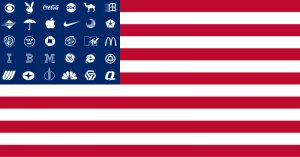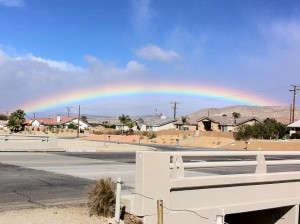“Nearly all men can stand adversity, but if you want to test a man’s character, give him power.” – Abraham Lincoln
For many years now, I have been interested in economics. Not enough to study it a whole lot in college, just enough to know higher math is not my forte. Nevertheless, I continued to be fascinated by the concepts of economics, particularly monetary systems.
For quite some time, I have been thinking about how we got into a situation where so many people have so little and so few have tremendous wealth. It is easy to blame the wealthy and likewise, it is easy for them to blame everyone else. As we have seen, this approach has gotten us nowhere, and in fact has been responsible for a great deal of death and destruction. So I thought maybe if I go back to the origin of wealth, how it is created, I might be able to understand how we got to this point.
As most people who are interested in this topic have no doubt done, I read about the history of economics, which in the Western hemisphere, is mostly about feudalism and then capitalism, the system which dominates the world today. Along the way, there have been attempts at alternate systems, like communism and socialism, as well mixtures of these various philosophies, or ideologies as they are sometimes called when applied to governance. All of these philosophies are intimately involved with economics, and are in fact, mostly explanations and justifications for the social order and how wealth and income is distributed within societies.
Wealth is generally represented by the ownership of assets. The foundational asset is land, and serves as the source of other wealth generated by the land such as food, water, fuel and other necessities of life. Thus the acquisition of land is historically the source of accumulated wealth. So how does one acquire land or other assets (like money in our modern society). There are only two ways this can happen initially: through savings obtained by forgoing current consumption or by force.
It appears that at least some people have gradually acquired wealth through a combination of savings and later, by fortuitous use of that savings to generate more wealth. Once a sufficient amount of wealth is acquired, it can serve as an accelerating spring board to greater wealth obtained in the form of passive income (i.e., interest and/or profits). This form of wealth acquisition can pass from one generation to another, and once it reaches a sufficient level, forgoing current consumption is not required.
Unfortunately, most wealth has been acquired by force, by an aristocracy or later, by governments. Using this approach requires a claim of right to do so, which has been legitimized by some belief that is shared by those on whom force is applied to deprive them of land and the fruits of their labors. Historically, religious belief systems have been the justification for the use of force. At the heart of these systems is the generation and sustenance of fear among the people. Between the threat of death from force and the threat of eternal damnation after death, fear was a cultural imperative. Since the transition from an feudal to modern society, the justification for the acquisition of wealth and its form of expression have changed, but the same cultural imperative that supports it continues – fear.
 In modern times, fear is perpetuated in a much more sophisticated and effective way. Since governments are beholden to the source of their funding, they mostly express the desires of their benefactors with an occasional reference to some form of legitimacy (i.e., elections) in order to claim the right to impose force on the people (i.e., the people agreed to it). With greater centralization and new technologies, the imposition of control over the people accelerated such that most people are more controlled than the feudal lords could have ever dreamed. The greatest achievement of the wealthy elites who now govern the world is convincing the people they are free when in fact, they are enslaved. For now, not only must the slaves feed, clothe and shelter themselves, they must borrow money to do so and thus, are debt slaves as well. Obviously, in this scenario, fewer and fewer people will ever have a shot at forgoing consumption in order to save money. After all, in the pyramid of wealth, only few people can ascend its heights and fewer still perch at its top. Thus, competition for these spots destroys the humanity and peace of even the few who perch upon the “pinnacle of success.”
In modern times, fear is perpetuated in a much more sophisticated and effective way. Since governments are beholden to the source of their funding, they mostly express the desires of their benefactors with an occasional reference to some form of legitimacy (i.e., elections) in order to claim the right to impose force on the people (i.e., the people agreed to it). With greater centralization and new technologies, the imposition of control over the people accelerated such that most people are more controlled than the feudal lords could have ever dreamed. The greatest achievement of the wealthy elites who now govern the world is convincing the people they are free when in fact, they are enslaved. For now, not only must the slaves feed, clothe and shelter themselves, they must borrow money to do so and thus, are debt slaves as well. Obviously, in this scenario, fewer and fewer people will ever have a shot at forgoing consumption in order to save money. After all, in the pyramid of wealth, only few people can ascend its heights and fewer still perch at its top. Thus, competition for these spots destroys the humanity and peace of even the few who perch upon the “pinnacle of success.”
So what is the point of my meanderings about wealth? The point is that there is no real justification for the acquisition of excessive wealth, riches which far exceed anyone’s capacity to consume or maintain a physical existence on this planet. As stated earlier, there is only one legitimate route to wealth, and that is by forgoing current consumption in order to create savings. Although that route has been available in some places at some times, it has not been available for the vast majority of people. And why is that? Because people can not generate savings when they do not have enough income to support their existence. When people are struggling to survive, when they don’t have adequate food, shelter or clothing, never mind health care and educational opportunities, they can not accumulate savings.
 As the level of wealth and income declines for people around the world, they are no longer able to “pull themselves up by their bootstraps”, assuming they had any real opportunity to do so, which at best, has been true for only a few people in a few places. Consequently, the only people who have vast wealth are those who either took it and by force or who siphon it from the labor of people who work directly or indirectly for them. Or both. When people have no choice but to live in such a system, they are not really free.
As the level of wealth and income declines for people around the world, they are no longer able to “pull themselves up by their bootstraps”, assuming they had any real opportunity to do so, which at best, has been true for only a few people in a few places. Consequently, the only people who have vast wealth are those who either took it and by force or who siphon it from the labor of people who work directly or indirectly for them. Or both. When people have no choice but to live in such a system, they are not really free.
Freedom is not something written on a centuries old document. It is not something we hear about from the mouths of politicians and others who are invested in maintaining a myth that legitimizes their power. No, freedom is a way of life, a way that needs no justification and is self-evident wherever and whenever it exists. If you don’t experience your life as free, then you aren’t free.
